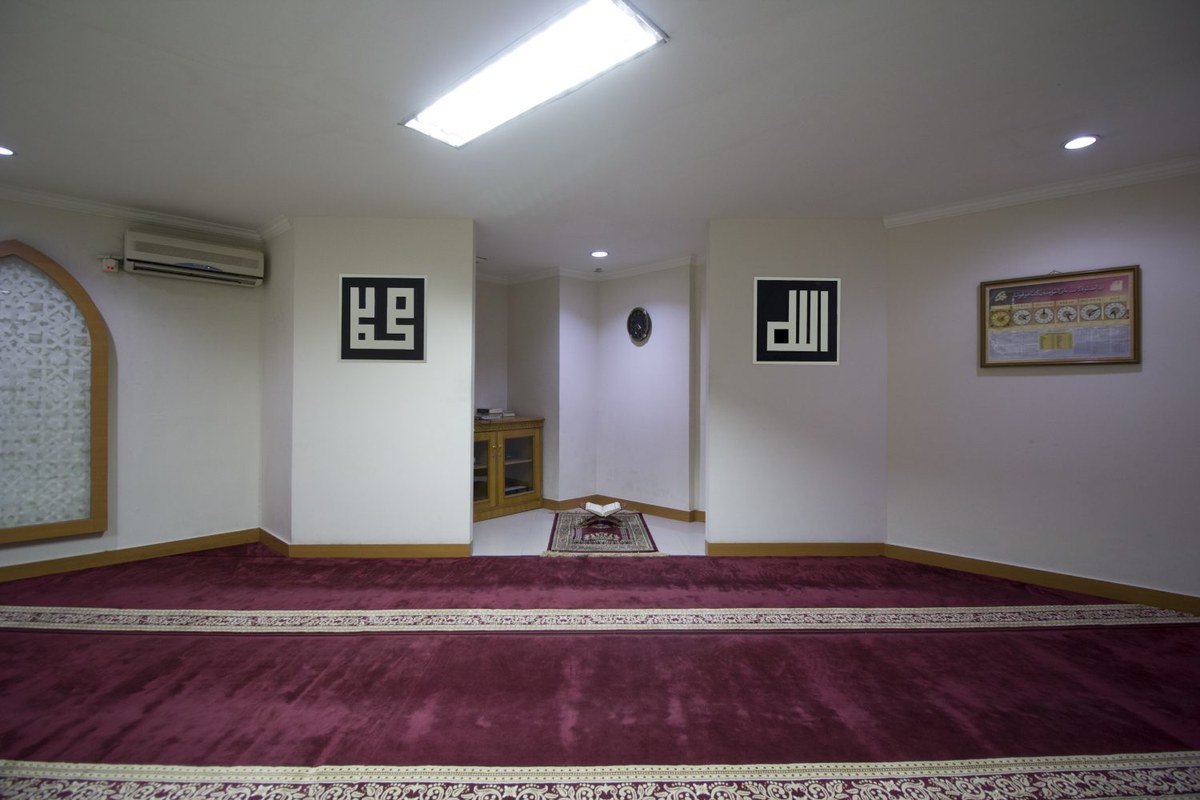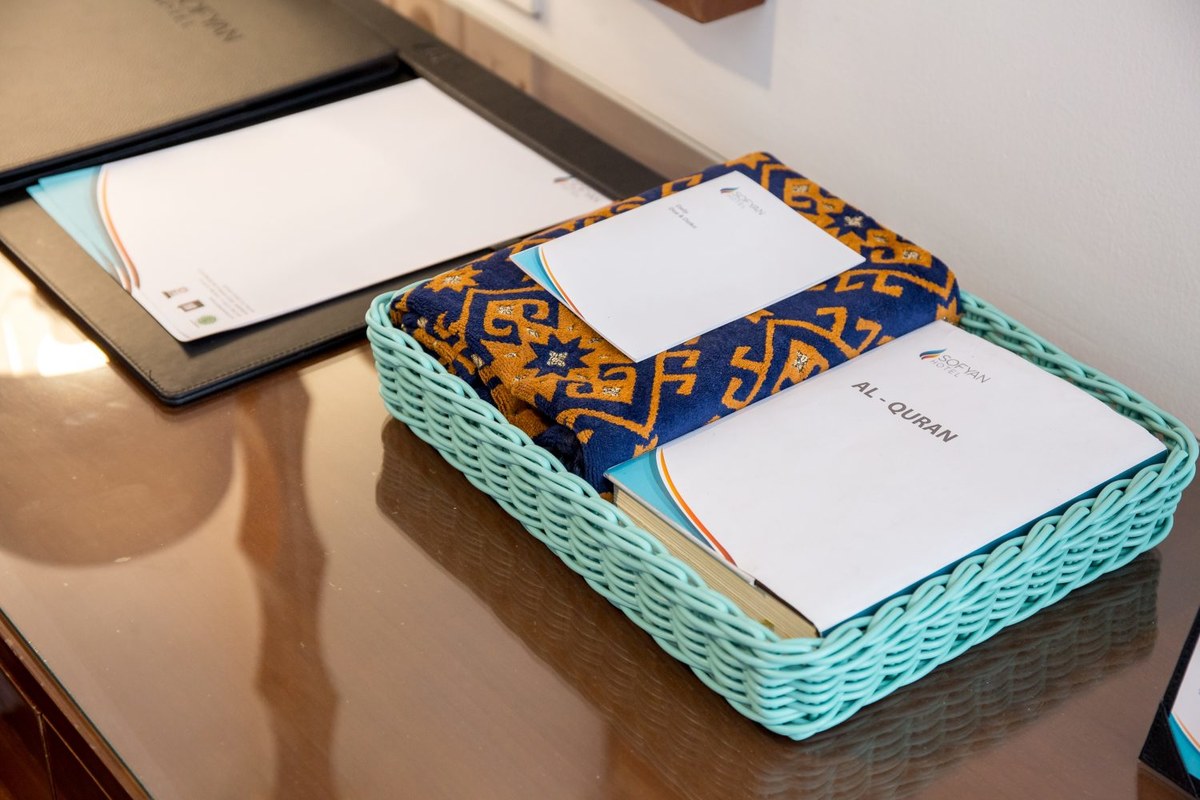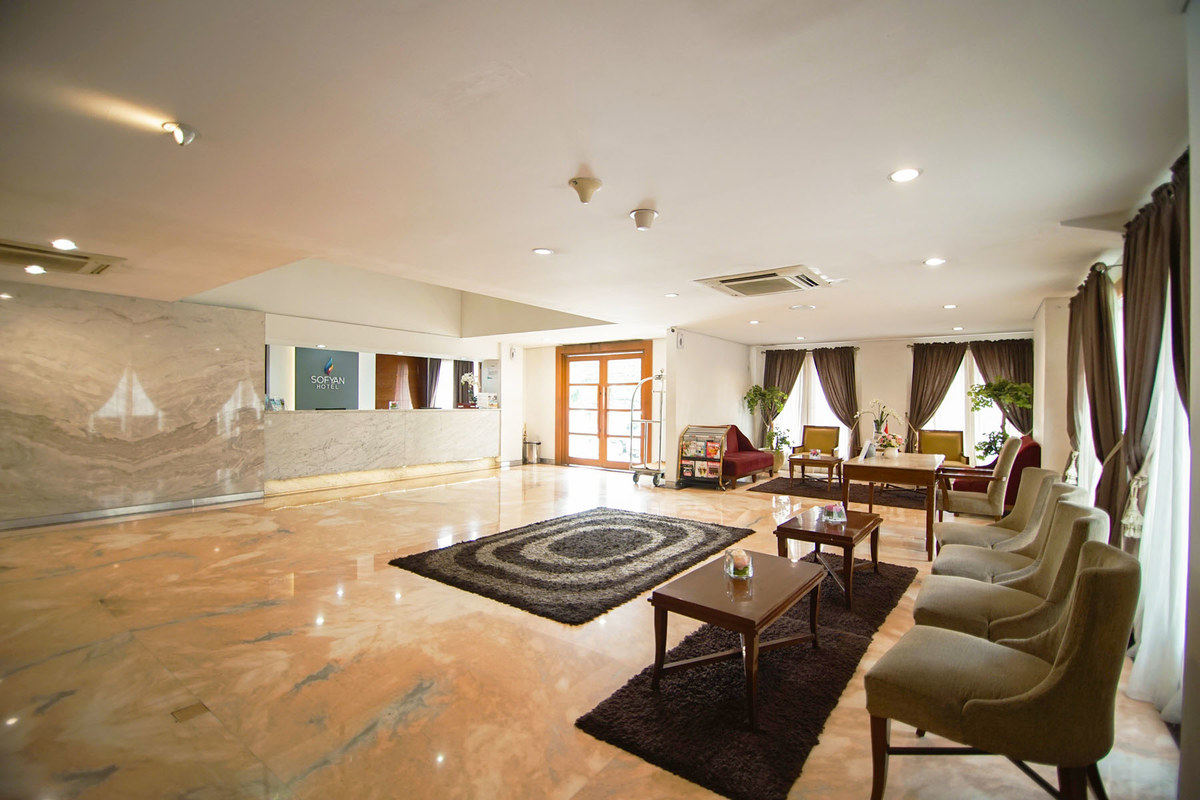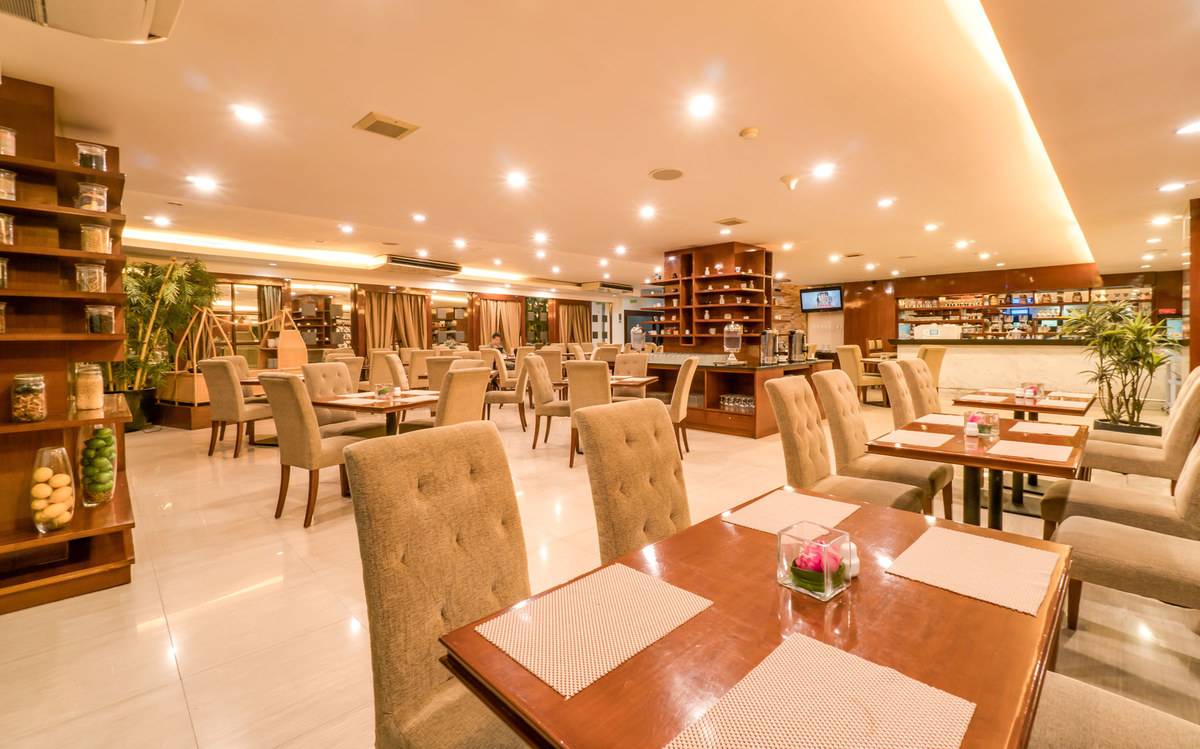JAKARTA: With a rising awareness to promote Muslim-friendly travel, the widespread adoption of Shariah-based accommodation is not always successfully put into practice, as Octine Riyantini realized during one of her stays at a hotel that claimed to be Shariah-compliant.
Riyantini has stayed in two Shariah-based hotels in Indonesia and had a good experience with the first one, where she found that hotel staff always greeted guests with the Islamic greeting, had call of prayers blasted from a speaker and provided prayer amenities as well as a Qibla sign in each room.
“The ambiance was very much Islamic and the hotel itself was clean and well-maintained,” she told Arab News.
She had a different experience with the second one, despite the Shariah label that goes with the hotel’s name in an online hotel reservation website.

The hotel has call of prayers blasted from a speaker and provided prayer amenities as well as a Qibla sign in each room. (Courtesy: Sofyan Hotel)
Although they provided a prayer room on each floor, Riyantini said it seemed like it was hastily prepared and a bit spooky, so she and her family chose to pray in their room. Moreover, the hotel was not properly maintained.
“Maybe they consider their hotel to be Shariah-compliant just because they provide a prayer room on each floor and a Qibla sign in the room, yet the overall ambiance hardly felt like it was Muslim-friendly,” she said.
“I learned that not all hotels that claimed to be Shariah-based are really compliant to the value. If we have to stay in such a hotel another time, we will have to consider which hotel chain it is associated with,” she said.
Muslim-friendly travel and tourism in Indonesia continues to rise, with Indonesia named as the number one destination, out of 130 countries, for halal tourism in the world by the Global Muslim Travel Index 2019.
Service providers have been quick to tap into the growing market, despite the controversy and misconceptions about halal tourism in the world’s largest Muslim-majority country.

The ambiance at the hotel is very much Islamic. (Courtesy: Sofyan Hotel)
According to a survey conducted by accommodation network operator Airy, 60 percent of Indonesian travelers think that it is important to have Shariah-based accommodation. The figure was consistent with data from the Alvara Research Center, which showed that 64 percent of Indonesian millennials travel and go on holiday at least once a year, providing a market of about 26 million holiday-hunting Muslim millennials.
Responding to the market demand, Airy in 2016 began offering a segment called Airy Syariah or a Shariah-based accommodation network.
“Our Airy Syariah properties offer Muslim-friendly accommodation so that guests can stay comfortably and worry-free. The market response has been good and demand for Shariah-based accommodation continues to rise every year. Our occupancy rate so far stands at 40 percent to 70 percent,” Airy vice president for marketing, Ika Paramita, told Arab News.

The hotel provides a prayer room on each floor. (Courtesy: Sofyan Hotel)
Paramita said Airy cooperates with more than 400 Muslim-friendly properties in some 50 cities across Indonesia and it has been growing at a triple-digit rate year-on-year.
“The food and drinks in our properties are halal-certified, and we provide Muslim-friendly amenities. Guests can immediately experience their stay in our Shariah-based properties, where hotel staff uniforms and attitudes conform to Islamic values. Moreover, we validate the marriage status when a couple is checking in,” Paramita said.

The food and drinks in the hotel are halal-certified. (Courtesy: Sofyan Hotel)
Shariah-compliant accommodation is not new in Indonesia. The Sofyan Hotel chain in Jakarta has implemented the concept in its two properties since 1992 by removing nightclubs, bars and alcoholic drinks from its facilities.
But the concept does not always appeal to all Muslims in Indonesia. University lecturer Ratna Djumala said she prefers to stay in a conventional hotel to show her children about meeting people of various backgrounds.
“I want to show my children about diversity and tolerance, especially this coming December when hotels are adorned with Christmas decorations. I want my kids to experience the ambiance, too. A family-friendly hotel doesn’t always have to be a Shariah-based one. What’s important for me is the food has to be halal,” she told Arab News.
Muslim-friendly travel was valued at $189 billion in 2018 and is estimated to reach $274 billion by 2024, according to the State of Global Islamic Economy Report 2019.




















